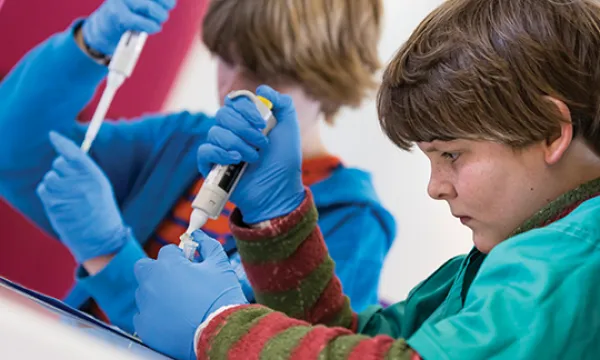
Brain Lab
A journey into the human body reveals the inner life of cells and an incredible world of almost unbelievable structure and function.
Recommended for: KS3 (11-14) | KS4 (14-16)
Access considerations
Workshop

A journey into the human body reveals the inner life of cells and an incredible world of almost unbelievable structure and function.
Access considerations
Workshop